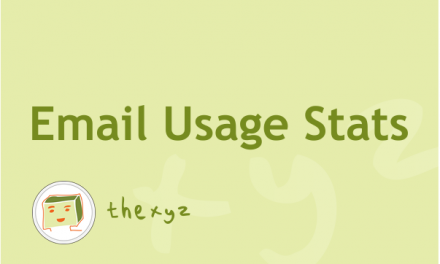Evaluating a cloud-based email archiving solution? It can be time consuming and hard to find answers to questions! But it doesn’t have to be.
For most businesses, regardless of size or industry, email archiving is a necessity and not an option at this point. But based on the ever-growing legal, regulatory and data governance requirements, basic email archiving functionality typically isn’t enough.
An advanced email archiving solution provides added capabilities related to data protection, search and flexibility that help a business cost effectively meet data demands and lower institutional risk:
• Automatically secure and preserve every inbound and outbound email and file attachment
• Find and retrieve exactly what you need in seconds with fast and accurate search tools
• Quickly and easily filter, tag and export relevant content
Warning: Some of the most popular and widely used email archiving platforms include restrictive data preservation, search and export limitations that make it challenging and expensive to meet the ongoing and growing demands for data and protect intellectual property. Those limitations can substantially raise the costs and risks associated with email management, compliance and discovery.
Ask these questions and use the accompanying talking points to help quickly evaluate a cloud-based email archiving solution for your business and determine whether it includes some of the most critically needed functionality.
How does your archive ensure the integrity of data for compliance, legal and other purposes?
Data preservation should ensure the protection of valuable information. Some archives allow data to be edited. Some archives provide access to deleted mailbox data for only a short time. Some archives support a very limited number of file attachment types.
Look for a solution that protects data with the integrity and security of industry-leading safeguards and protocols, including:
• Preserving every inbound and outbound message with immutable WORM storage
• SSL encryption for data in transit
• AES-256 encryption for data at rest
• Geo-dispersed data centers that are FISMA, ISO 27001, SSAE- 16, FedRamp and PCI-DSS compliant
Follow-up questions to ask:
• Can deleted messages and attachments be accessed indefinitely?
• Does deleted data remain searchable and downloadable?
• Is a wide range of file types archived and indexed, including video, audio and image files?
How does your archive make it fast and easy to search and find all relevant data?
Search tools should provide granularity to help find exactly what you need quickly. Some archives only provide a couple search options. Some archives are loaded with search limitations.
Look for a solution that can perform wildcard, Boolean, proximity, fuzzy logic and custom query searches
Follow-up questions to ask:
• Are there limitations on the number of mailboxes per search, volume of results per search or number of concurrent searches?
• Are keyword statistics rendered for all searches?
How does your archive support easy and flexible data export?
Archived data should be able to be effectively filtered and exported. Some archives allow data to be exported only as a PST or proprietary file type; data must often be converted to another format. Some archives have zero flexibility: export of search results is all or nothing; individual messages and attachments can’t be downloaded.
Look for a solution that enables data export as PST, EML, NSF, PDF, HTML and TXT files
Follow-up question to ask:
• Can search results be filtered, tagged and exported as needed?
If you’re not using an advanced email archiving solution to preserve valuable business data, you’re likely wasting time and money on compliance, legal and governance requirements. Plus, you may be putting your intellectual property and your business at unnecessary – and avoidable – risk.







